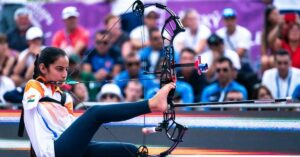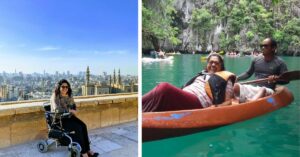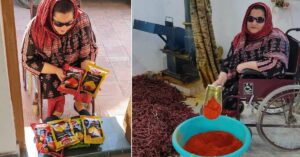They Say the Blind Should Not Lead the Blind. She Proves Them Wrong.
She could not walk alone herself once. She now helps others walk. Meet Tiffany, the woman with visual disability, who has a vision beyond the ordinary.
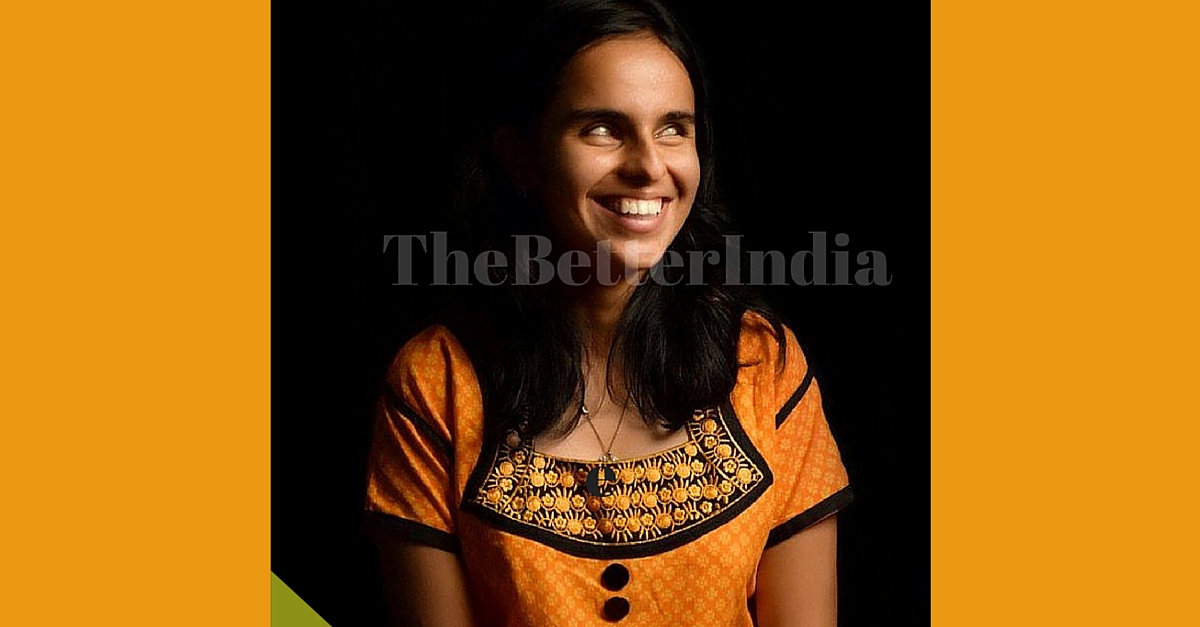
She could not walk alone herself once. She now helps others walk. Meet Tiffany, the woman with visual disability who has a vision beyond the ordinary.
“What does it mean when people say I cannot walk by myself, I cannot travel by myself? I have a mouth to talk, I have a brain to think, I can walk, and I have a cane to find my way around. Then why can I not travel by myself? I was like a bird in a cage, not allowed to come out without an escort. But now my life has been transformed,” these words and thoughts just tumble out of an excited Tiffany Brar.
The “whys” and “why nots” that once plagued her are now helping her change the lives of other blind people. She is on a journey from complete dependency and is well on the road of independence.
Tiffany is a 26-year-old teacher, entrepreneur, motivational speaker, and she is blind. Being blind is the last piece of information you need about her because she has created many more powerful identities for herself.
Tiffany created these identities by transgressing the conventions of how the life of a blind girl should be.
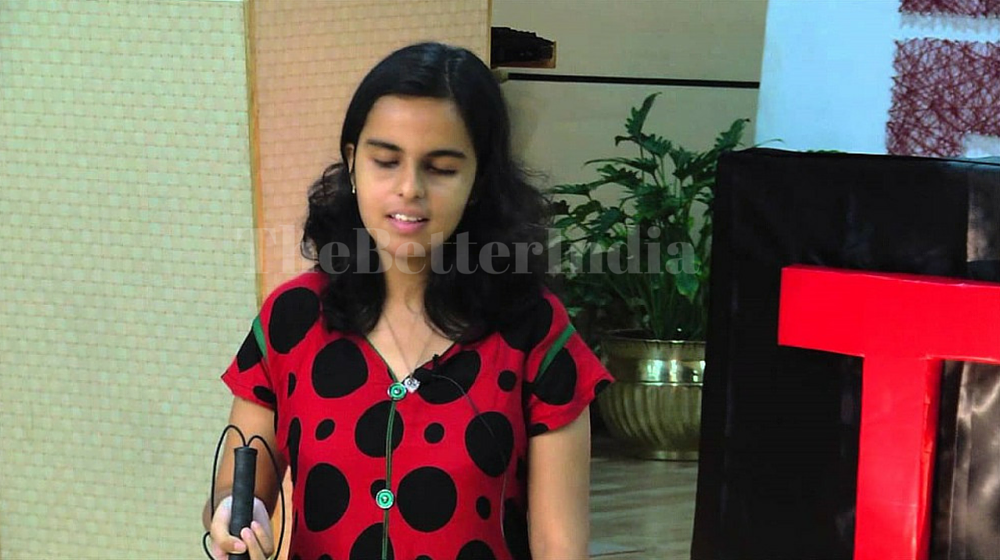
Earlier, she was not trusted with the ability to take care of herself and her personal needs. She never travelled by herself. She did not even know that the ‘white cane’ existed. Tiffany’s life, until she was 18, was like that of a typical, totally dependent blind person in India. But it had to change.
As far back as Tiffany can remember, she has been blind. Born into an army family, Tiffany was schooled across India — Darjeeling, Delhi, Thiruvananthapuram, and Wellington — accommodating her father’s postings. While her father, General Brar, was busy at his demanding job, it was her mother, Leslie, who was Tiffany’s backbone. She was a gentle, caring woman who strongly influenced the little girl’s early life. Leslie always felt for the poor and went out of her way to help the needy. And this gentleness is what she left with Tiffany before succumbing to a fatal illness.
Tiffany was all of 12 years when her mother passed away. Those were tough times and Tiffany had to gather her courage and learn to live life by herself. Her father was posted in Delhi but Tiffany found herself completely out of place in the big city. She loved a simple life and the high society buzz in Delhi did not settle well with her. Tiffany went back to Thiruvananthapuram, a place very close to her heart and where she lives today, to continue her schooling until 11th standard. The final year of her schooling was in Wellington, a place that gave her the strongest support in her life, Vinita Akka.
Vinita Akka was the domestic help at Tiffany’s hostel. Vinita Akka affectionately took care of Tiffany, taught her how to dress up, fold clothes, make her bed, and do all those seemingly ordinary things that we do in our daily lives.
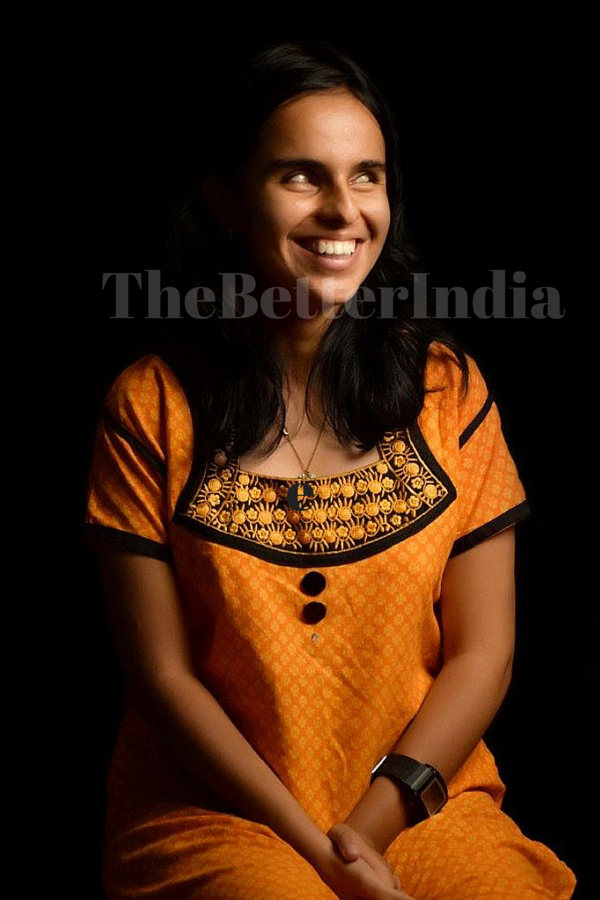
Neither the regular schools, nor the blind schools that Tiffany went to, had bothered to teach her how to handle these basic needs. She recalls that sometimes she and other blind children even wore their clothes inside out. They cared little about their physical appearance. When Vinita Akka began to take an interest in Tiffany, the seeds for change were sown. Tiffany started dressing well and began to learn to manage her day-to-day activities on her own. She persistently trained herself to change her mannerisms as well. Yet, there were many more miles to cross on the road to independence.
Tiffany could not go anywhere alone. She was always escorted by someone. The words “impossible” and “you can’t do it” continually echoed from the people around her. But Tiffany was determined that this would not continue. By the time she got a chance to break free and discover herself, she had spent 18 years of her life like this.
After completing her schooling at Wellington, Tiffany moved to Thiruvananthapuram to pursue her Bachelors in English, along with Vinita Akka who was by now like a mother to her. It was here that her life changed. Her father once took her to the Kanthari Center in Thiruvananthapuram, an organization that provides leadership training for individuals who are inclined to bring about social change. Tiffany held her father’s hand and started walking towards the Kanthari office that was under construction. That’s when Sabriye Tenberken, the co-founder of Kanthari, handed a white cane to Tiffany and urged her to walk on her own.
Her father immediately shouted, “No, you cannot walk alone here. There’s rubble and debris all around. You will fall.”
Something inside Tiffany made her push aside her father’s hand, raise her own hands and grab the white cane, unheeding of the anxious voice of her father.
She started tapping her way to the office. These taps of the white cane became the most liberating experience for Tiffany — she now knew she wanted to walk free.
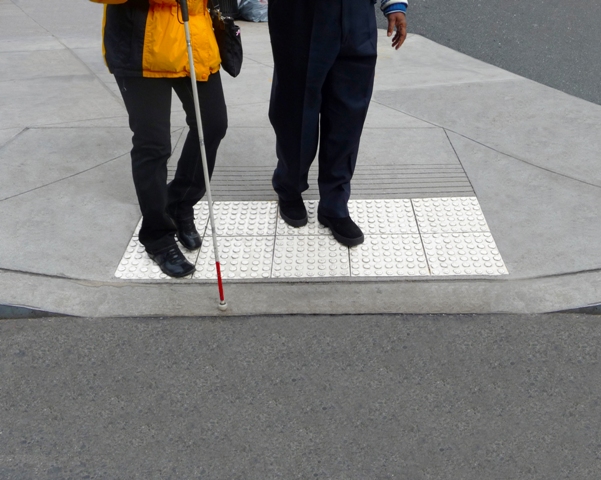
Picture for representation only. Source: Wikimedia
Tiffany joined Kanthari as a receptionist and went on to do an entrepreneurship course at the organization. By now she was travelling all by herself. She found her way on the public roads and transport, which she otherwise wouldn’t ever have traversed without constant help. She took buses to go around the city and uninhibitedly asked people for help to cross the roads. By now, she had many friends who she would meet on her daily commute, who looked up to her with pride.
Once Tiffany felt that she was living like any other person, she wanted many like her to experience this joy. She found the inspiration to serve in Sabriye Tenberken and her husband Paul Kronenberg, the co-founders of Kanthari. Sabriye was herself blind but had made an extraordinary effort to come out of her own limitations to help other blind people.
Sabriye and her husband founded the first blind school in Tibet and also founded Braille without Borders, an organization that helps the blind to take charge of their own lives.
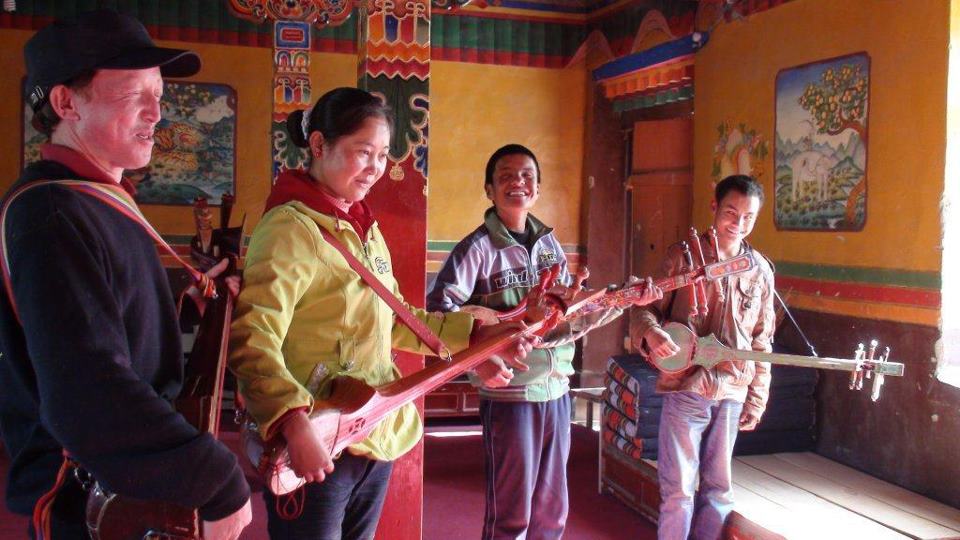
Source: Facebook
Tiffany recognized that, like them, she too could bring about a change in the lives of the blind.
To equip herself better, she decided to pursue a B.Ed. in Special Education from Sri Ramakrishna Mission Vidyalaya in Coimbatore. Given her own experience, she knew how other blind people were afraid to come out of their protected zones. They lacked mobility, confidence and the necessary life skills to accomplish this on their own. According to the 2001 census survey, there were 400,000 blind people in the state of Kerala.
“Where were all these blind people? Why didn’t we see them walking on our roads? I decided I must be the one to make a difference,” says Tiffany, who was, in 2012, well equipped with her education to start her project ‘Jyothirgamaya.’
Jyothirgamaya, which means ‘from darkness to light,’ is a mobile blind school that is based on the idea that if blind people cannot go to school, let the school go to the blind.
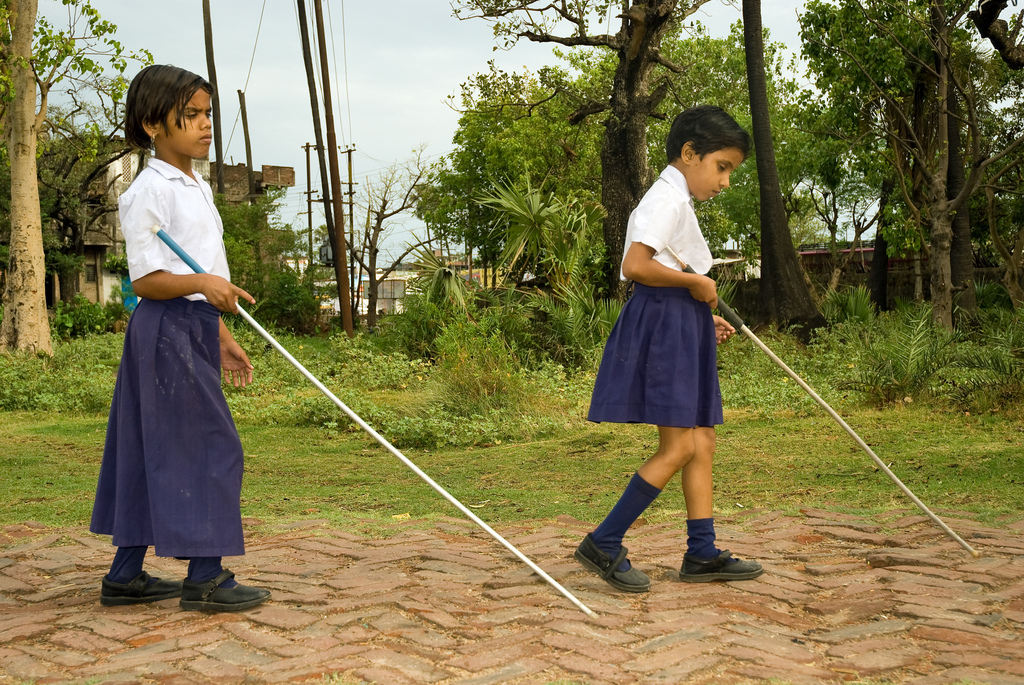
Picture for representation only. Source: J P Davidson/Flickr
The idea was the brainchild of N. Krishnaswamy, a retired police officer from Tamil Nadu, and the first of its kind in the state of Kerala.
Through Jyothirgamaya, Tiffany and her team visit the homes of many blind people in Thiruvananthapuram. They teach them Braille, computers, personal grooming, and other life skills. They are taught to use the white cane and become mobile. Jyothirgamaya organizes camps across Kerala to mobilize the blind. It also organises outdoor activities, city tours and introduces new and unfamiliar activities.
Tiffany is just 26 and has a lifetime of service ahead that she’s prepared for.
“I envision a society without any physical or psychological barriers towards the blind – a barrier free environment where the blind can walk freely, can travel, can work, think for themselves, and live proud and dignified lives like other citizens. Society thinks that we can only sing sweet songs, only become teachers and telephone operators in the bank. But we can do more. We can dance, we can fire juggle, we can do martial arts, we can become managers and directors of companies. But society is constantly interpreting what we can do and what we can’t. This has to change very soon,” says a spirited Tiffany.
She is a woman with a vision beyond the ordinary.
Like this story? Or have something to share? Write to us: [email protected], or connect with us on Facebook and Twitter (@thebetterindia).
This story made me
- 97
- 121
- 89
- 167
Tell Us More
We bring stories straight from the heart of India, to inspire millions and create a wave of impact. Our positive movement is growing bigger everyday, and we would love for you to join it.
Please contribute whatever you can, every little penny helps our team in bringing you more stories that support dreams and spread hope.






